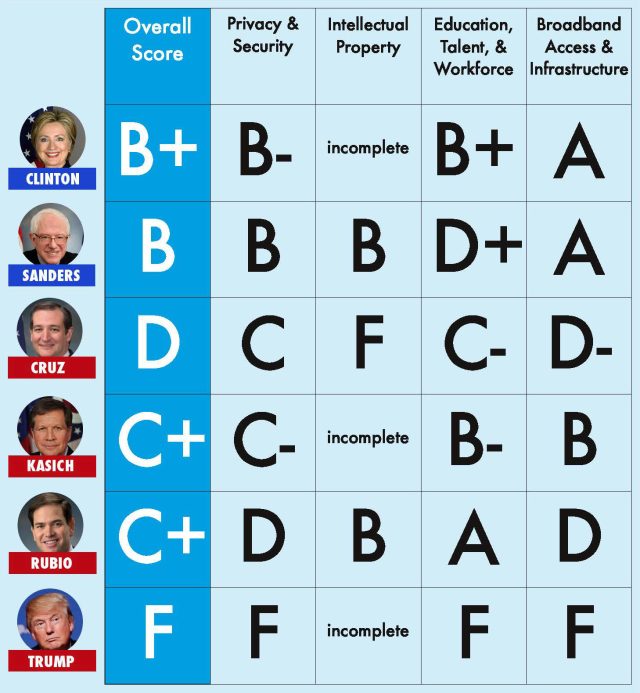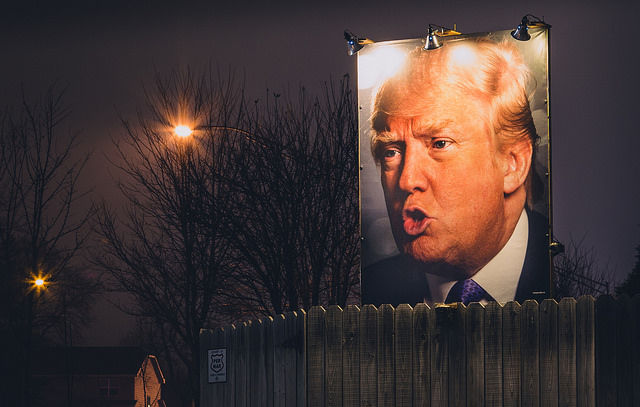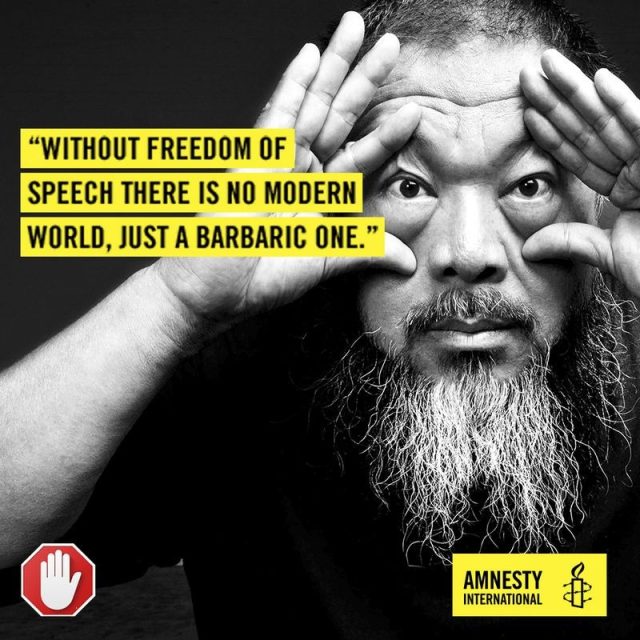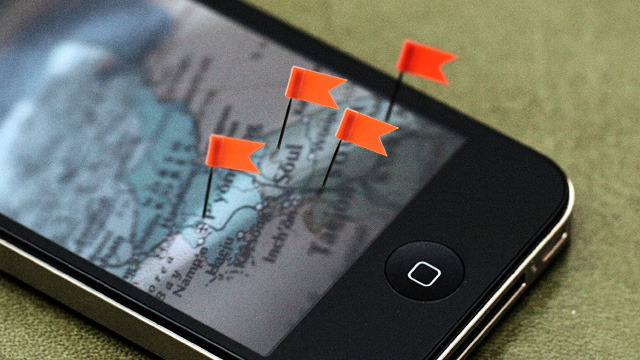
(credit: Engine)
On the same day that five key states voted in the presidential primaries, startup lobbying shop Engine took a close look at where the candidates stand on important tech issues like privacy, net neutrality, and patent reform. If your views on those issues align with Engine's, you won't find their 2016 Candidate Report Card an encouraging read.
After taking a look at the candidates' records in four policy areas, Democrat Hillary Clinton got the highest overall grade: a B+. Her challenger Bernie Sanders got a B, while Republican candidates ranked lower: C+ grades for Marco Rubio and John Kasich, a D for Ted Cruz, and straight F's for Donald Trump.
Candidates were ranked on "privacy and security" based on whether they understood the importance of strong encryption and supported reforming privacy and surveillance laws. Bernie Sanders (the only candidate who has suggested leniency for Edward Snowden), got a B. Both Sanders and Clinton (B+) have a "relatively nuanced approach" to the encryption debate. Trump (F), Kasich (C-), and Cruz (C) have made statements "that show little understanding of what encryption is and its role in protecting user safety and security." Rubio earned a D for his promises to double down on NSA surveillance.








